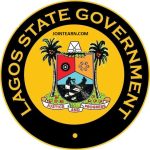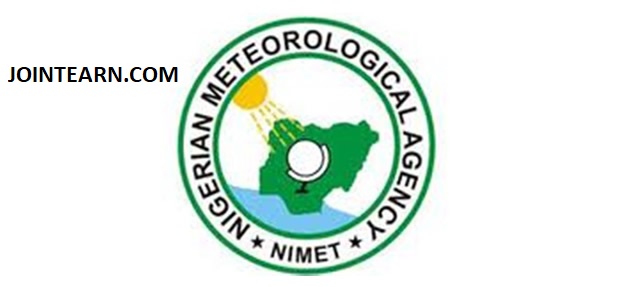In a significant boost to the economic outlook of Nigeria’s regional states, international credit rating agency Fitch Ratings has upgraded the investment ratings of four Nigerian states, including Lagos and Kaduna. The other two states benefiting from this upgrade are Ogun and Rivers, marking a positive shift in the economic stability and growth potential of these key Nigerian regions.
The upgrade was officially announced by Fitch Ratings in a recent report, where the agency cited improvements in the fiscal management, economic growth, and governance frameworks of the affected states. According to Fitch, the ratings reflect a combination of prudent financial strategies, growing local economies, and improved infrastructure development, which have collectively strengthened investor confidence in these regions.
Lagos: Economic Powerhouse of Nigeria
Lagos, often referred to as the economic and financial capital of Nigeria, saw its investment rating upgraded due to its strong economic performance, significant contribution to the national GDP, and continuous efforts to modernize its infrastructure. With a population exceeding 23 million and a highly diversified economy, Lagos is home to many industries, including finance, telecommunications, manufacturing, and technology. The state’s ports are also critical to Nigeria’s import and export activities.
Fitch noted that Lagos has made considerable strides in revenue diversification, moving away from over-reliance on federal allocations. The state government’s emphasis on boosting internally generated revenue (IGR) through taxes and innovative financial initiatives has been a key factor in its improved rating. In particular, Lagos has implemented reforms in its tax collection system, expanded its digital payment platforms, and improved the business climate, which has led to more foreign direct investment (FDI) and greater private sector involvement in the state’s development.
The rating upgrade also takes into account the state’s proactive efforts to improve infrastructure, including the construction of road networks, public transportation systems, and the expansion of energy and water supply projects. Lagos’ large-scale projects, such as the Lekki Free Trade Zone and ongoing urban renewal efforts, are expected to sustain its economic growth and investment appeal in the long term.
Kaduna: Resilience Amid Challenges
Kaduna, located in Nigeria’s northwestern region, was also granted an upgrade by Fitch, which lauded the state’s resilience and reforms despite facing significant challenges, including security concerns and economic instability. Over the past few years, the Kaduna State Government has worked to transform its agricultural and manufacturing sectors by implementing various policies aimed at attracting investment and improving infrastructure.
The state’s investment rating boost is largely attributed to improvements in fiscal discipline, budget management, and a commitment to reducing its reliance on federal allocations. Kaduna has pursued fiscal reforms, including debt restructuring and the introduction of public-private partnerships (PPPs) to enhance infrastructure development.
Fitch also acknowledged the state’s efforts in promoting industrialization, such as the development of industrial zones and support for small and medium-sized enterprises (SMEs). With an emphasis on providing an enabling environment for businesses to thrive, Kaduna has positioned itself as a hub for agribusiness, technology, and renewable energy.
Ogun and Rivers: Emerging Economies with Strong Growth Potential
Ogun State, situated in Nigeria’s southwestern region, was recognized for its consistent growth in industrial output and business expansion. The state has increasingly attracted investments in sectors such as manufacturing, agriculture, and infrastructure. Ogun has benefited from its proximity to Lagos, which has allowed it to capitalize on its strategic location to support industries, including cement production, textiles, and agro-processing.
Fitch noted that Ogun has made significant strides in revenue collection, largely through its initiatives to boost tax compliance and broaden its tax base. The state government’s focus on creating an investor-friendly environment, coupled with large-scale infrastructure projects such as the Ogun State Industrial Park and the expansion of its road networks, contributed to the rating upgrade.
Rivers State, located in the Niger Delta region, is one of Nigeria’s key oil-producing states and an economic powerhouse in its own right. Rivers State’s upgrade was driven by positive developments in its non-oil economy, particularly in sectors such as agriculture, manufacturing, and logistics. The state government has been working to reduce its dependency on oil revenues by diversifying its sources of income and improving the ease of doing business.
The rating upgrade was also based on Rivers’ improved financial management, including its efforts to reduce debt levels and enhance internal revenue generation. With the development of key infrastructure, including deep-sea ports, highways, and industrial zones, Rivers State is positioning itself as a prime investment destination for both local and international businesses.
Implications for Investors and the Broader Nigerian Economy
The upgraded ratings of Lagos, Kaduna, Ogun, and Rivers by Fitch Ratings are expected to have a positive impact on investor sentiment and capital inflows into these regions. The upgrade reflects the states’ improved fiscal health, robust economic diversification strategies, and sound governance frameworks, which are key factors for attracting private investments and fostering long-term economic growth.
Analysts believe the upgrade will also have a ripple effect on other states in Nigeria, encouraging them to adopt similar reforms to improve their investment climate and financial stability. Furthermore, the ratings send a strong message to the international community about Nigeria’s growing commitment to improving governance at the subnational level.
For businesses, this move creates more confidence in operating in these states, as it signals lower risks and higher returns on investment. It also makes these states more attractive to foreign investors seeking stable and sustainable investment opportunities in Africa’s largest economy.
As Nigeria continues to recover from economic challenges and global disruptions, the upgrade of these four states’ investment ratings could serve as a catalyst for broader economic transformation across the country.












